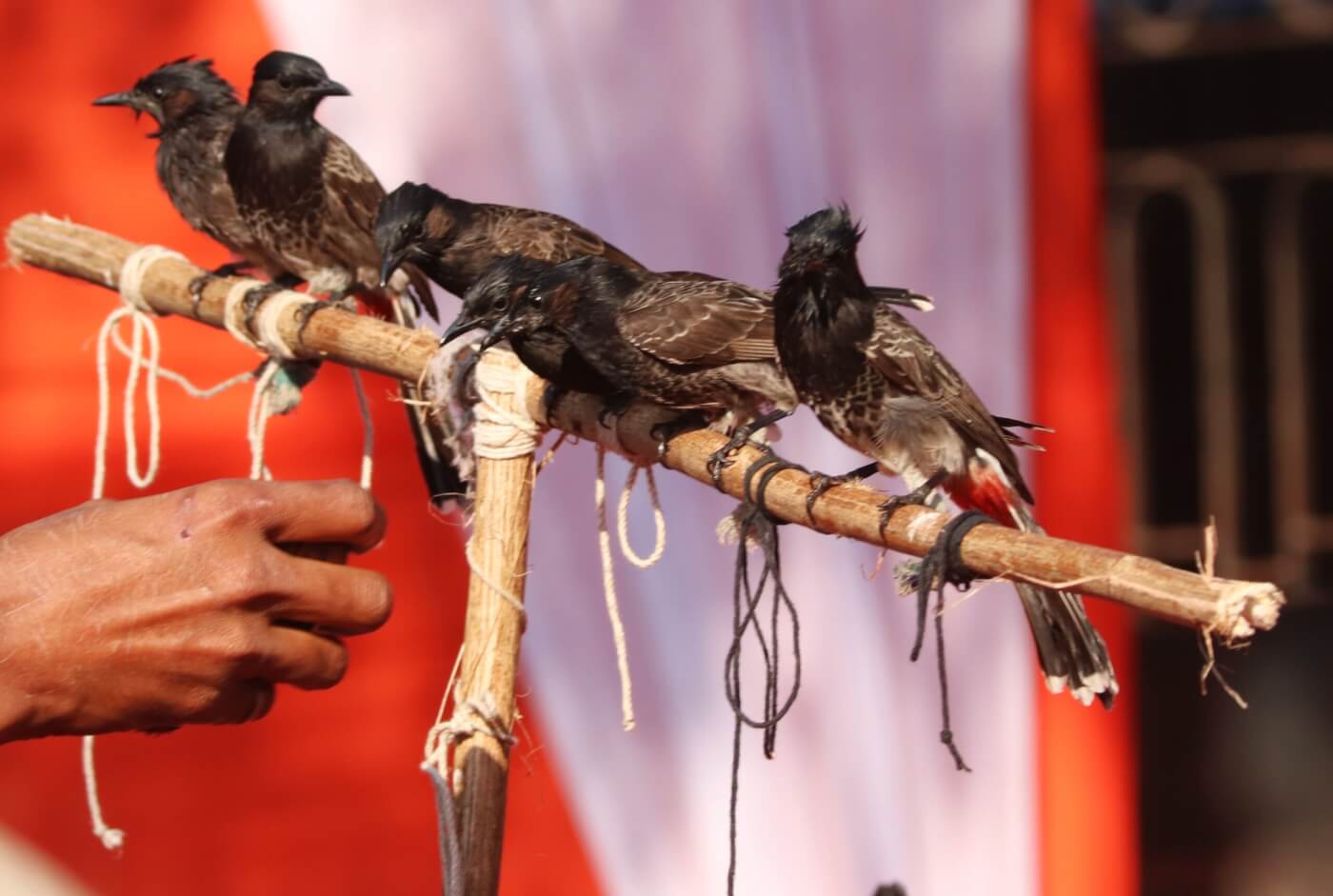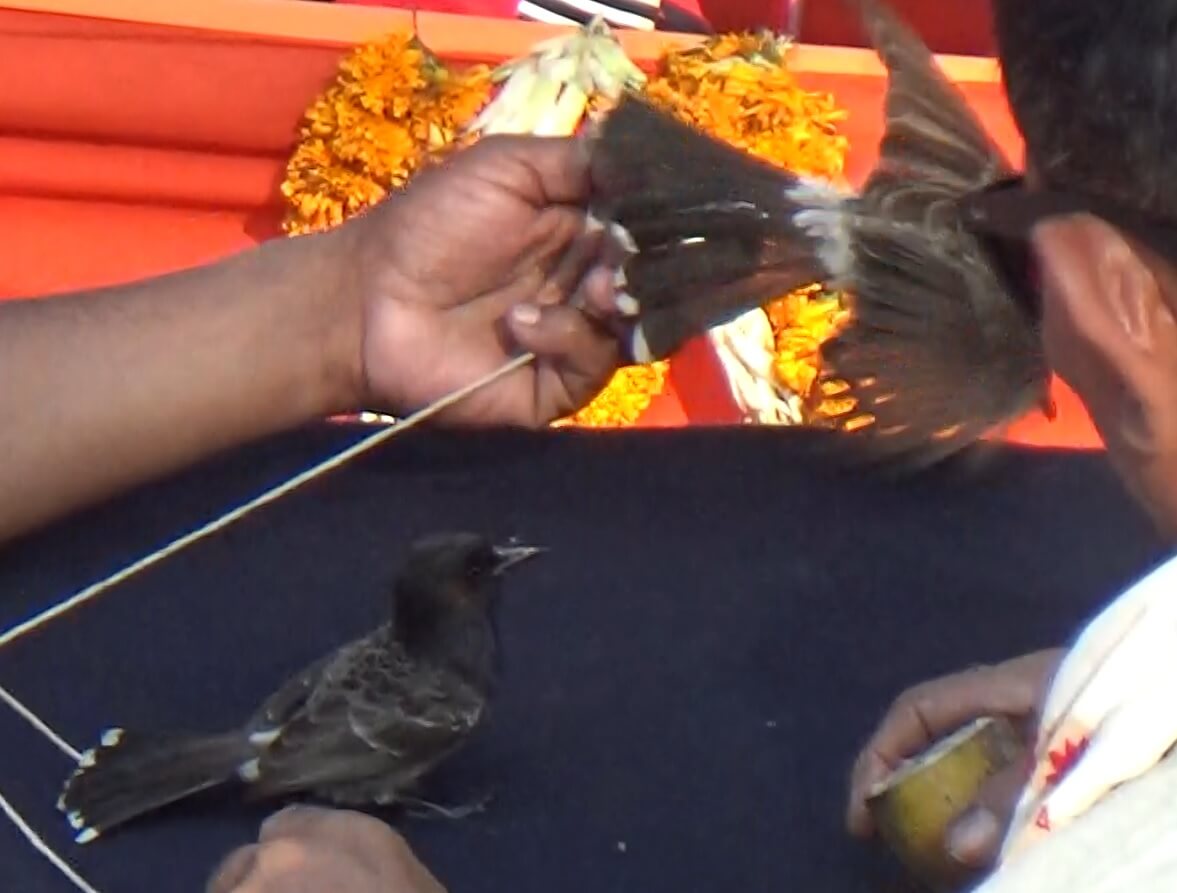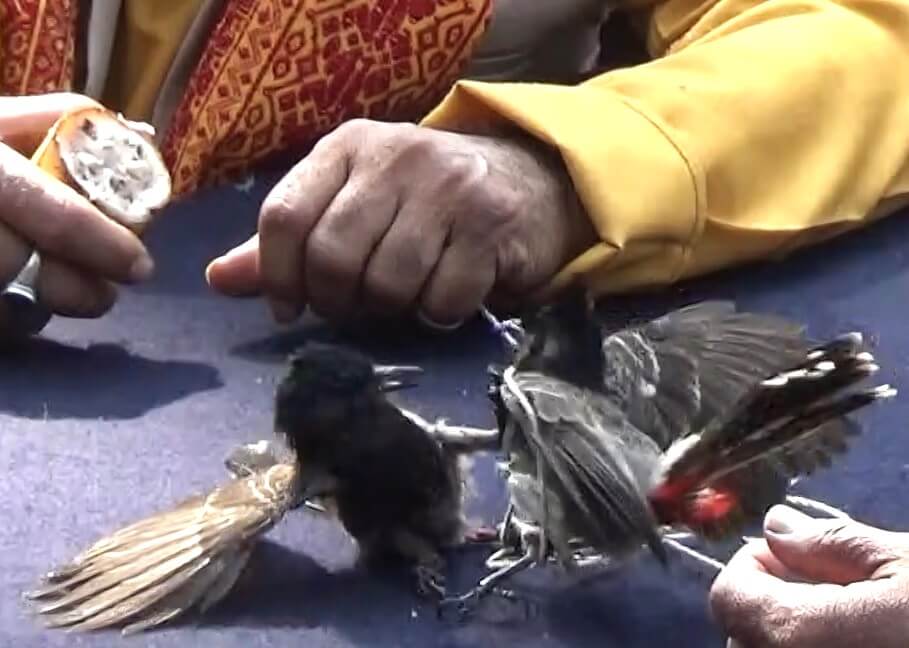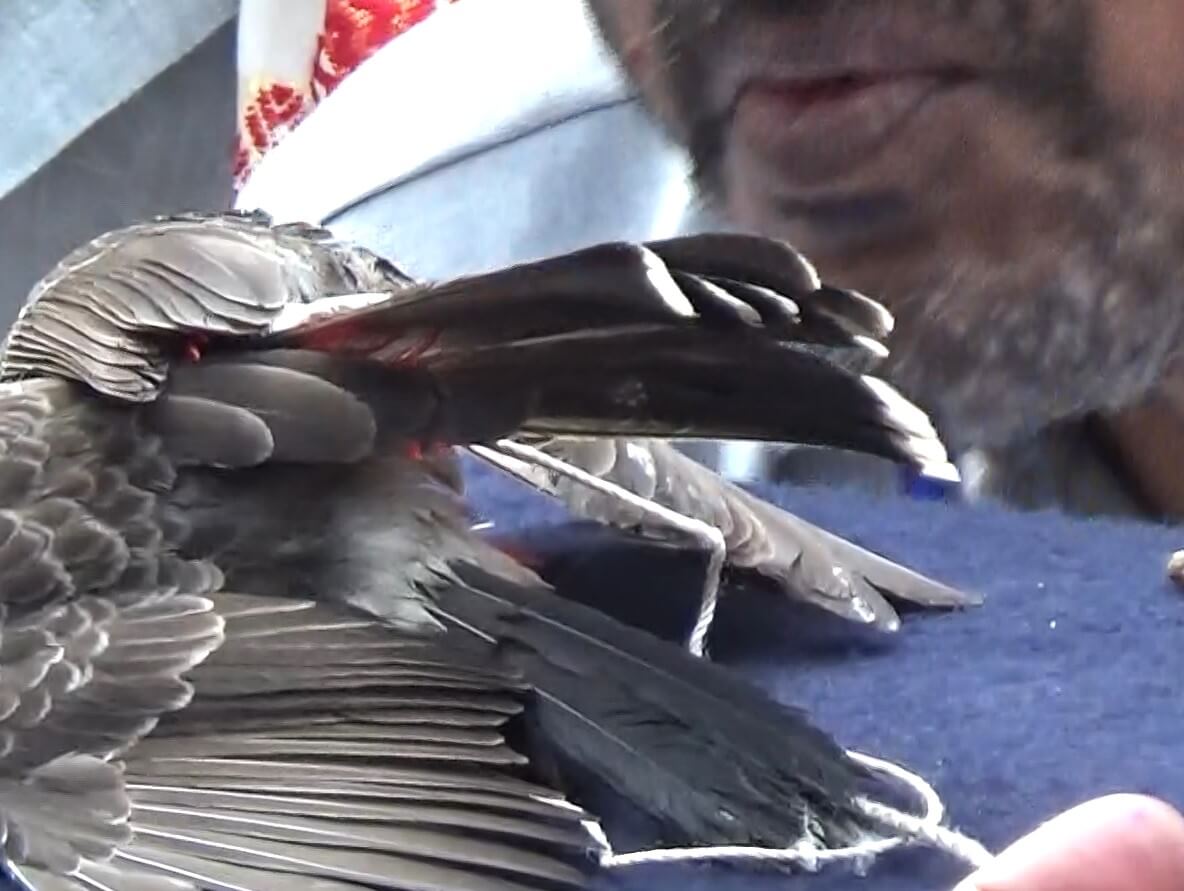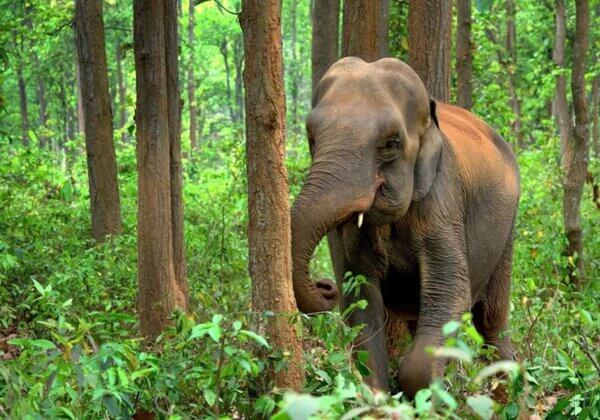Gauhati High Court Approached by PETA India to Ban Bulbul Fights
Following the Assam government’s decision to allow bulbul bird fights, PETA India filed a petition with the Gauhati High Court making the case for the cruel spectacles to be prohibited again. As evidence, PETA India submitted investigations into these fights which reveal that starved and intoxicated bulbuls were made to fight over food. PETA India’s petition cites numerous violations of central law in the conduct of this event. The group is also seeking an interim stay before the Gauhati High Court to prevent any bulbul fights from being conducted during the course of the proceedings.
An investigation conducted into a bulbul bird fight held in Hajo in Assam on 15 January revealed that red-vented bulbuls – who are protected under Schedule II of the Wild Life (Protection) Act, 1972 – were illegally captured and incited, against their natural instincts, to fight over food.
It is reported that the birds are captured several days before the fight. Capturing protected wild birds is considered a form of hunting and is illegal.
The birds are reportedly commonly drugged with marijuana and fed other intoxicating herbs, bananas, black pepper, cloves, and cinnamon to agitate them, then they are starved for at least one night before the fight. During the fight, a piece of banana is dangled in front of the hungry birds, inciting them to attack each other. Each fight lasted approximately five to 10 minutes, and handlers forced exhausted birds to continue fighting by repeatedly blowing air on them.
PETA India’s petition to the High Court points out that the bulbul fights violate the Constitution of India; The Prevention of Cruelty to Animals Act, 1960; and judgements of the Hon’ble Supreme Court of India, including in Animal Welfare Board of India vs A Nagaraja. Such fights are inherently cruel, cause immeasurable pain and suffering to the animals forced to participate, and contradict the tenets of ahimsa (non-violence) and compassion, which are integral to Indian culture and tradition. Allowing these events to continue is a regressive step which threatens to undo almost a decade of progress in human and animal rights.


